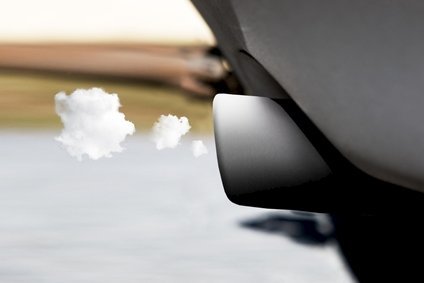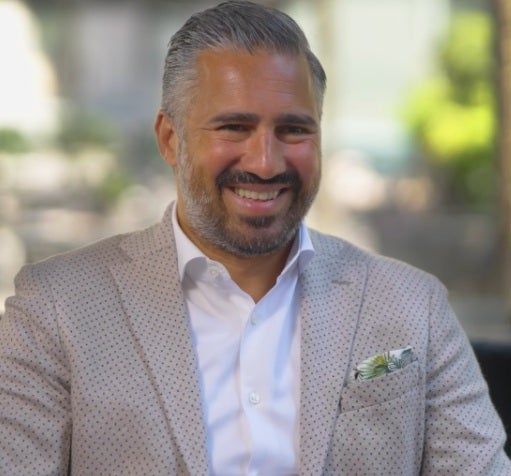
Combustion engine share of automotive sales globally may be heading down as electrification gathers pace, but they will retain an important role in sustainability strategies for some time to come. We hear more on the subject from Anish Taneja, CEO, Clean Air Division, Johnson Matthey – a company best known for its catalytic converters and emission control business.
Is it fair to assume that the emission control business involving combustion engines is facing long-term decline as battery electric vehicles steadily take more share of the global vehicle market?

Discover B2B Marketing That Performs
Combine business intelligence and editorial excellence to reach engaged professionals across 36 leading media platforms.
Yes, it’s correct to recognise that currently the emission control business for combustion engines is facing a long-term decline as battery electric vehicles continue to gain traction globally. This trend is particularly evident in regions where infrastructure and supportive policies are accelerating the shift towards electrification.
However, it’s important to note that ICE vehicles will remain a significant part of the automotive landscape for several years, especially in markets where affordable, low-carbon alternatives and the necessary infrastructure are not yet widely available.
We are aware of these market dynamics and have a clear strategy to navigate this transition: we are working closely with our existing customers to innovate and address their evolving technical and operational challenges, while also strengthening current relationships and building new ones in emerging markets.
Our approach is technology-neutral, recognising that a range of solutions including clean ICE, alternative fuels, hybrids, and hydrogen will play a role in decarbonising transport in the medium-term. We continue to invest in and develop our auto catalyst technologies to ensure they meet increasingly stringent emissions regulations and changing market requirements, supporting our customers throughout this period of significant change.

What are the main factors impacting JM’s Clean Air division?
The long-term decline of the ICE engine market across all sectors will inevitably impact our core business, in tandem with short-term headwinds such as pricing pressures and inflation.
There is a strategy in place to minimise this impact; we are working with existing clients to innovate and solve their technical and operational challenges; we are strengthening existing relationships while building new relationships in growing markets with both ‘off-the-shelf’ solutions and differentiated service offerings.
Can you say something about your main customer base?
Our primary customer base spans leading global automotive manufacturers. We supply advanced emission control solutions for both light-duty and heavy-duty vehicles, addressing diverse regulatory requirements and market needs. Our products support a wide range of powertrains, including traditional ICE, hybrids, and emerging hydrogen technologies, ensuring we remain aligned with global shifts in transport decarbonisation.
What are your immediate business priorities for the next 12 months?
Our immediate priorities are centred on supporting our partners as they navigate a period of significant industry transformation. We are committed to enabling our customers to focus on their core business by providing reliable, innovative solutions that address their evolving needs. As the automotive sector continues to shift towards electrification and low-carbon technologies, we are ensuring that our operations remain agile and efficient, allowing us to respond swiftly to changing market demands. By optimising our processes and maintaining strong, collaborative relationships with our partners, we aim to deliver exceptional value and service. This approach not only positions us to support our customers through transition, but also ensures the long-term resilience and competitiveness of our own business in a rapidly changing landscape.
How do you work with the OEMs on powertrain technologies? Are your teams embedded with the OEM product development and engineering teams?
We collaborate closely with our customers by embedding our technical teams within their product development groups. This allows us to address challenges in real time and integrate our solutions seamlessly. The approach we take is highly tailored to each customer: we take the time to understand each customer’s unique needs and goals, ensuring our support is both practical and relevant.
Our close collaboration means we can co-create innovative powertrain technologies that help customers meet emissions and sustainability targets. We see our role not just as a supplier, but as a lasting partner focused on cleaner, more sustainable transport.
Earlier this year, a long-term collaboration with Bosch was announced for catalyst-coated membranes for use in fuel cell stacks. What do you see as the potential benefits there?
Hydrogen plays a vital role in the decarbonisation of transport by offering a clean energy source for vehicles, particularly in sectors where battery electric technology faces limitations, such as heavy-duty and long-haul applications. By enabling low or zero emissions at the point of use, hydrogen supports our customers’ sustainability goals while complementing other powertrain technologies in the transition towards net zero.
Where do you see the business in ten years’ time?
Our vision for the Clean Air Division continues to be targeting a reduction in emissions by being the lasting partner for our customers. Overall, the heavy-duty truck market is growing globally, driven by China and India. ICE is still the dominant powertrain in the segment, though we expect H2-ICE to grow into a significant part of the portfolio over the next decade.
Market electrification will stay relatively low by decade-end. We believe the petrol hybrid market will outlast diesel in the light-duty market. Hybrids are becoming the preferred powertrain during the EV technology transition, offering fuel efficiency and reduced emissions without fully switching to electric. Johnson Matthey is in a strong position to support all of that.






